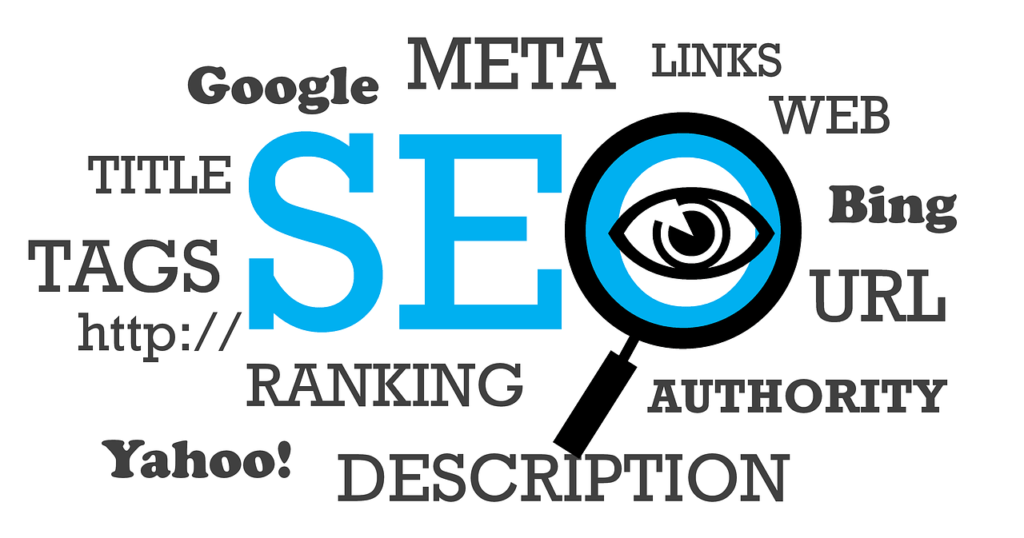In this article, you’re going to get a real answer to the question: How long does it take for SEO to start working for a new website?
In case we haven’t met before, I’m Matt Diggity, the founder of several SEO businesses, including LeadSpring, The Search Initiative, The Affiliate Lab, and the Chiang Mai SEO Conference. Through these companies, I’ve had the opportunity to work with tons of websites.
Right now, I have 207 websites under management—yes, you read that right, 207! Of these, 51 were created in the last 12 months alone. This means I get to keep my finger on the pulse of how long it takes for a website to start generating traffic after SEO strategies are applied. Let me say this upfront: Things have definitely changed, especially over the last few years.
Let me take you back real quick to the year 2014. Doing SEO around this time was what you’d call “easy mode.” Back then, we used to test the competitiveness of certain niches by building what were known as skeleton sites. These skeleton sites looked something like this: You’d have a homepage with 300 words of content, which you could get written for as little as $3. You’d place the keyword in the title, once in the first paragraph, and once in an H2 tag. Then, you’d slap a YouTube video on the page for good measure. After that, you’d send a strong backlink directly to this single-page website. Within three days, you’d find yourself on page one of Google. That’s how quick and easy it was.
These days, as you know, things are a lot different, and there are plenty of reasons for that. First off, Google started dropping the so-called “Google Sandbox” on us like it’s nobody’s business. The Sandbox is like a leash placed on new websites that prevents them from ranking quickly. Many people argue over whether or not the Sandbox actually exists, but here’s how I see it: Whenever people start new websites, they typically come prepared with a bunch of keyword research. If they’ve done a good job, they’ve found some extremely uncompetitive keywords to target first. These are keywords with virtually zero competition. But despite that, when they start these websites, they end up on page billion of Google for those zero-competition keywords. That’s the Sandbox in action. By the way, I’ll give you some tricks to avoid the Sandbox later in this article.
Next, there’s no other way to put it: There’s just more competition these days. If you started a blog on golfing in 2010, you were probably competing with just 10,000 other golf websites. Now, you’re up against 500,000. You can’t just slide up the rankings like you used to unless you’re an SEO badass because you’ve been watching my content.
Another reason it takes longer to get SEO results today is the sheer amount of content required in today’s Google environment. If you’re trying to rank at the top of Google for a topic like fishing, it’s not enough to write a single article on fishing and hope you’re going to do well. Even if it’s the best damn article in the world on fishing, it’s just not going to work. Google wants your website to answer multiple questions about fishing across multiple articles—questions like “How do I get a fishing license?” “What are fishing rods made from?” and “Why is beer so good when you fish?” Okay, maybe not the last one, but you know it’s true.
This concept is called topical authority. When you completely blanket a topic, Google rewards you because you’ve become an authority on that subject. If you’re starting a new website with just five articles on fishing, you’re not going to compete; it’s going to take time.
And finally, the last reason SEO takes longer these days is the importance of backlinks. A backlink is when one website links to another with a textual or sometimes image-based link. Back in 2001, Google founder Larry Page patented his PageRank algorithm, which detailed how Google would rely heavily on backlinks to determine rankings in the search results. That commitment to backlinks still holds true today, sometimes to such an extreme that search results can seem a bit crazy. For example, if I Google “best penis enhancement pills” (not because I need to, of course—it’s purely for demonstration purposes!), the top three websites are likely not topical authorities on penises. They’re not even health websites. They’re just sites with a billion backlinks that post content on any subject and end up at the top of Google. That’s how much Google still loves backlinks. And when you’re just starting out, this is what you’re up against.
So, in this article, I’m going to give you a realistic expectation of how long SEO takes to work for a new website. And make sure to stick around until the end because I’m going to share some tested methodologies that can significantly speed up this process. But first, if I could ask a quick favor: Could you please test the Like button to make sure it shoots out digital confetti? I’ve been appointed the lead like button confetti ambassador, so I’m looking to spread the word to fine folks like yourself. Just kidding—but smashing that Like button helps support the channel and makes my day at the same time. So, thanks in advance!
Real-World Insights: How Long Does SEO Take for a New Website?
I posed this question to the members of the Affiliate SEO Mastermind Facebook group: How long does it take for a brand-new website to gain traction in Google? Let’s say 5,000 visitors per month. And I’m talking about normal SEO here—nothing that will speed up the process, like 301 redirects, expired domains, or any fancy tricks (which I’ll share later in this article).
Why did I choose 5,000 visitors per month as the threshold? It’s a solid number. You can make some decent money with 5,000 visitors per month—a lot of money if you’re in the right niche. So, let’s take a look at the results.
A huge majority of the voters—74%, to be precise—selected six to 12 months as the answer. That’s a lot, and in my experience, they’re right. Most of the websites I work on start to turn the corner within this time period. But there are definitely some exceptions, which I’ll show you shortly.
Six to 12 months of building content and links will eventually get you out of the Sandbox and start moving you up the rankings, earning that sweet, sweet traffic. The next category, coming in at 17%, was the one to six-month range. So, we definitely have people getting results in less than six months. And I can say from my experience that I’ve certainly had websites that reached the 5K per month mark in less than six months, and that’s without using any fancy tricks. I’ll show you one of those soon. That said, breaking the six-month barrier is more the exception than the rule.
Next, we have the 12 to 18-month category, coming in at 6%. Now, what do I think about the people who voted for this category? They suck. Just kidding! In reality, these are folks answering honestly, not letting ego drive their votes. If you’re in a super competitive niche, it’s extremely normal to take at least a year to get traction, and that includes myself.
Then, we have the two-year-plus category with 2% of the votes, the “It depends” category with 0.7% (which successfully points out that you should always have a healthy breakfast and an anti-glare monitor), the 18 to 24-month category with 0.4%, and the less than one-month category with one vote—from the guy with the biggest…well, you know where I’m going with this.
So, what are my thoughts on these votes? I almost completely agree. In my experience, most of the time, sites take six to 12 months. Sometimes, I get lucky with a six-month site because of a variety of factors, which I’ll discuss soon. And sometimes, it takes longer than a year due to other factors, which we’ll also get into shortly. But six to 12 months, if you’re doing everything right, is very typical.
Here’s a table showing the time to hit 5K traffic for the last five sites I’ve started from scratch. Keep in mind that these sites are in various niches with various levels of competition, but the average has been 8.6 months, which aligns with the poll results.
That said, I have one site here that I’ve been working on for about four months, and it’s in a super competitive niche. It should hit 5K traffic next month, but this is using one of the speed-up techniques I’ll show you later.
Factors That Affect SEO Timing
Ultimately, how long it takes to reach the top of Google depends on a few factors. Here’s how those factors will adjust the time it takes for SEO to kick in:
- The Google Sandbox: We talked about the Google Sandbox earlier—Google places a leash on your site in the beginning phases. The Sandbox typically lasts two to four months. If you can avoid the Google Sandbox or at least shorten its duration, you can expect to reach 5K traffic in the one to six-month range. We’ll discuss techniques for this later.
- Level of Competition: If you’re in a high-competition niche, be prepared to take a year or more to see results. These sites have to beat out heavy competition, and to do that, you’ll need more content and more backlinks. The best way to reduce this time is to do a deep-dive audit of your competitors, figure out their weaknesses, and exploit them.
- Content Quality and Quantity: The quality and quantity of your content will play a huge role in how quickly you start seeing results. In competitive niches, you need to publish a lot of high-quality content. In less competitive niches, you can get away with fewer articles, but they still need to be top-notch. Remember, Google rewards topical authority, so the more thorough and comprehensive your coverage of a subject, the better.
- Backlinks: As mentioned earlier, backlinks are still crucial for ranking. If you’re able to secure high-quality backlinks from relevant websites early on, you can significantly reduce the time it takes to see SEO results. But remember, building backlinks should be a natural process—don’t rush it.
Strategies to Speed Up SEO Results
Now that we’ve covered the factors that influence how long SEO takes, let’s talk about some strategies to speed up the process:
- Avoid the Sandbox: One way to avoid or shorten the Sandbox period is to build your site on an expired domain. An expired domain is a domain that was previously owned but has since expired and is now available for purchase. If the expired domain has a good backlink profile, you can skip the Sandbox altogether and start ranking sooner.
- Use 301 Redirects: Another way to speed up SEO results is by using 301 redirects. A 301 redirect is a permanent redirect from one URL to another. If you have a website that already has some authority, you can use 301 redirects to pass that authority to your new site, helping it rank faster.
- Leverage Internal Linking: Internal linking is the practice of linking to other pages on your website. This helps search engines understand the structure of your site and can help boost the rankings of individual pages. Make sure your internal links are relevant and add value to the user experience.
- Publish Content Regularly: Regularly publishing high-quality content is one of the best ways to speed up SEO results. Aim to publish at least one new piece of content each week. This keeps your site fresh and signals to Google that your site is active and relevant.
- Optimize for Long-Tail Keywords: Long-tail keywords are longer, more specific keyword phrases that are less competitive than shorter, more general keywords. Targeting long-tail keywords can help you rank faster and start generating traffic sooner.
Conclusion
So, how long does SEO take to work for a new website? The answer is, it depends. In most cases, you can expect to see significant results within six to 12 months. However, by using some of the strategies outlined in this article, you may be able to speed up the process and start seeing results in as little as one to six months. Just remember, SEO is a marathon, not a sprint. Consistency, quality, and patience are key.
If you found this article helpful, don’t forget to hit the Like button and share it with others who might benefit. And if you have any questions or want to share your own experiences, drop a comment below. I’d love to hear from you!





















